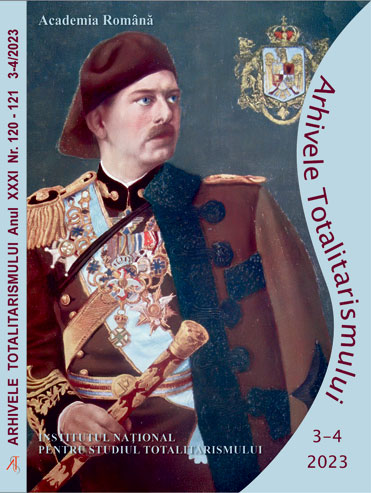Carol al II-lea
Ascensiunea autoritarismului și naționalismului monarhic 1934-1937, II
Carol II of Romania: The Rise of Monarchic Authoritarianism and Nationalism, 1934-1937, II
Author(s): Doru A LixandruSubject(s): History, Recent History (1900 till today), Special Historiographies:, Interwar Period (1920 - 1939), WW II and following years (1940 - 1949), Fascism, Nazism and WW II
Published by: Institutul National pentru Studiul Totalitarismului
Keywords: King Carol the Second; authoritarian regime; interwar Romania; intellectuals; culture; propaganda;
Summary/Abstract: In the years 1934-1937, cultural “carlism” tends to have a special dynamic. The initiatives of King Carol the Second (1930-1940) gradually set up a genuine “cultural offensive”, which coincides with the work of his foundations, respectively with the activity of cultural homes in villages and with a series of strategies aimed at spreading the literacy and popularizing reading. In the name of the monarchy, three main directions of cultural action are outlined. The first is related to the policy of spreading the literacy among peasants, the second to the activity of cultural houses, and the third to the initiatives of the royal student teams. But the three strategies are also conceived as a unitary policy, focused at the same time on nationalism, monarchism and sociological research methods theorized by Dimitrie Gusti.The rise of monarchic authoritarianism is forged and encouraged, besides the king, by a multitude of intellectuals, politicians and military, among which we mention Cezar Petrescu, Pamfil Șeicaru, Vladimir and Constantin Donescu, Nichifor Crainic, Mihail Manoilescu, Nicolae Iorga, Valer Pop, Ion Nistor and Ion Inculeț.
Journal: Arhivele Totalitarismului
- Issue Year: XXXI/2023
- Issue No: 3-4
- Page Range: 56-73
- Page Count: 18
- Language: Romanian
- Content File-PDF

